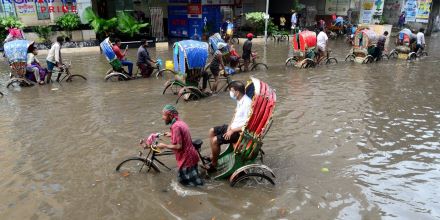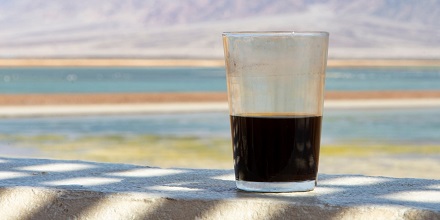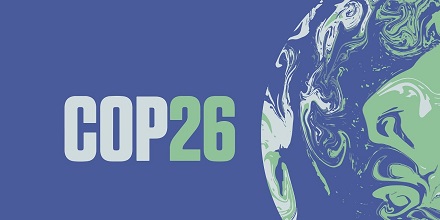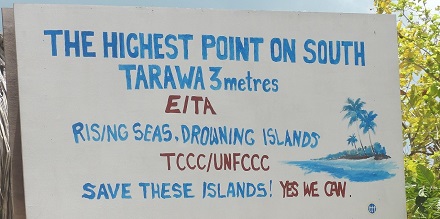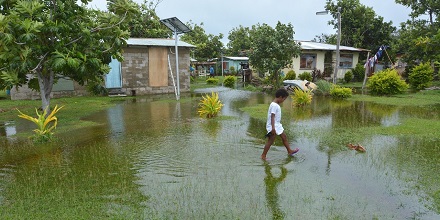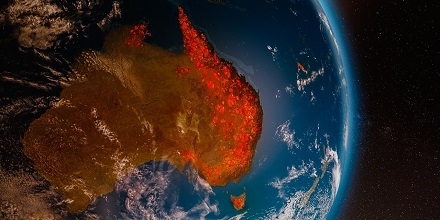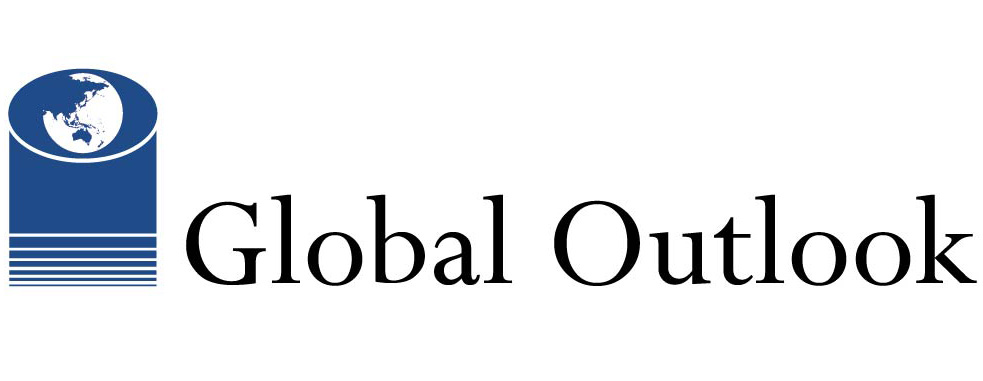
Curated expert opinion on intractable contemporary issues
Global Outlook: Climate Change and Conflict
Climate Migration Fuels Conflicts in Bay of Bengal Region
By Anuradha Nagaraj | 23 February, 2022
Climate change pressures are pushing people from their homes and exacerbating tensions over control of valuable but shrinking natural resources like land, water and minerals, says new report
Glasgow Climate Change Conference: A Glass Half Empty
By Ian Fry | 07 December, 2021
For many, the Glasgow Climate Change Conference, known as COP26, was a significant disappointment. Much had been promised by the UK Government, but last-minute ructions over the reference to the phase out of coal left many with a sour taste in their mouth. Glasgow was an opportunity to steer the global community towards the Paris Agreement goal of limiting global temperatures to 1.5⁰C above pre-industrial levels. For Pacific Small Island Developing States, the Glasgow conference was to be the pivot point for global action to address climate change.
Pacific Voices Loud and Clear at COP26
By Volker Boege | 04 December, 2021
Only a few Pacific Islanders made it to Glasgow in November 2021 for COP26. Out of the approximately 30,000 conference attendees, only about 140 were from Pacific Island Countries (PICs). Due to COVID-19 restrictions, both government delegations and civil society representation were considerably smaller than at previous COPs.
The Seas Are Coming For Us in Kiribati. Will Australia Rehome Us?
By Akka Rimon and Anote Tong | 30 November, 2021
Our atoll nation is barely two metres above sea level, and the waters are coming for us.
Despite the progress and momentum of the COP26 climate conference in Glasgow, we are still not moving fast enough to avoid the worst of climate change.
Pacific Civil Society Concludes Regional Consultations on Climate-Related Mobility
By Sabira Coelho and Christopher Yee | 12 October, 2021
In June 2021, the Pacific Climate Change Migration and Human Security (PCCMHS) programme hosted the regional civil society consultation on climate related mobility. The online consultations were organized by the International Organization for Migration (IOM) and provided an opportunity for civil society representatives from around the Pacific to review the human security implications of climate change related migration, displacement and planned relocation, share experiences about how climate related mobility is impacting communities and talk towards the development of a regional based solution.
Criticism of Australian Government’s Haphazard Climate Policies from Surprising Source
By Volker Boege | 05 October, 2021
The current Australian government is lagging far behind other developed countries on climate policies. It has been criticised domestically and internationally for its lack of commitment and efforts, not least from its neighbours in the Pacific. Pacific Island Countries (PICs) are particularly exposed and vulnerable to the effects of climate change, and they are at the forefront of international diplomatic initiatives on climate change.
The views and opinions expressed in Global Outlook are those of the authors and do not necessarily reflect the official policy or position of Toda Peace Institute.
Climate Migration Fuels Conflicts in Bay of Bengal Region
By Anuradha Nagaraj | 23 February, 2022
Climate change pressures are pushing people from their homes and exacerbating tensions over control of valuable but shrinking natural resources like land, water and minerals, says new report
Glasgow Climate Change Conference: A Glass Half Empty
By Ian Fry | 07 December, 2021
For many, the Glasgow Climate Change Conference, known as COP26, was a significant disappointment. Much had been promised by the UK Government, but last-minute ructions over the reference to the phase out of coal left many with a sour taste in their mouth. Glasgow was an opportunity to steer the global community towards the Paris Agreement goal of limiting global temperatures to 1.5⁰C above pre-industrial levels. For Pacific Small Island Developing States, the Glasgow conference was to be the pivot point for global action to address climate change.
Pacific Voices Loud and Clear at COP26
By Volker Boege | 04 December, 2021
Only a few Pacific Islanders made it to Glasgow in November 2021 for COP26. Out of the approximately 30,000 conference attendees, only about 140 were from Pacific Island Countries (PICs). Due to COVID-19 restrictions, both government delegations and civil society representation were considerably smaller than at previous COPs.
The Seas Are Coming For Us in Kiribati. Will Australia Rehome Us?
By Akka Rimon and Anote Tong | 30 November, 2021
Our atoll nation is barely two metres above sea level, and the waters are coming for us. Despite the progress and momentum of the COP26 climate conference in Glasgow, we are still not moving fast enough to avoid the worst of climate change.
Pacific Civil Society Concludes Regional Consultations on Climate-Related Mobility
By Sabira Coelho and Christopher Yee | 12 October, 2021
In June 2021, the Pacific Climate Change Migration and Human Security (PCCMHS) programme hosted the regional civil society consultation on climate related mobility. The online consultations were organized by the International Organization for Migration (IOM) and provided an opportunity for civil society representatives from around the Pacific to review the human security implications of climate change related migration, displacement and planned relocation, share experiences about how climate related mobility is impacting communities and talk towards the development of a regional based solution.
Criticism of Australian Government’s Haphazard Climate Policies from Surprising Source
By Volker Boege | 05 October, 2021
The current Australian government is lagging far behind other developed countries on climate policies. It has been criticised domestically and internationally for its lack of commitment and efforts, not least from its neighbours in the Pacific. Pacific Island Countries (PICs) are particularly exposed and vulnerable to the effects of climate change, and they are at the forefront of international diplomatic initiatives on climate change.
The views and opinions expressed in Global Outlook are those of the authors and do not necessarily reflect the official policy or position of Toda Peace Institute.
